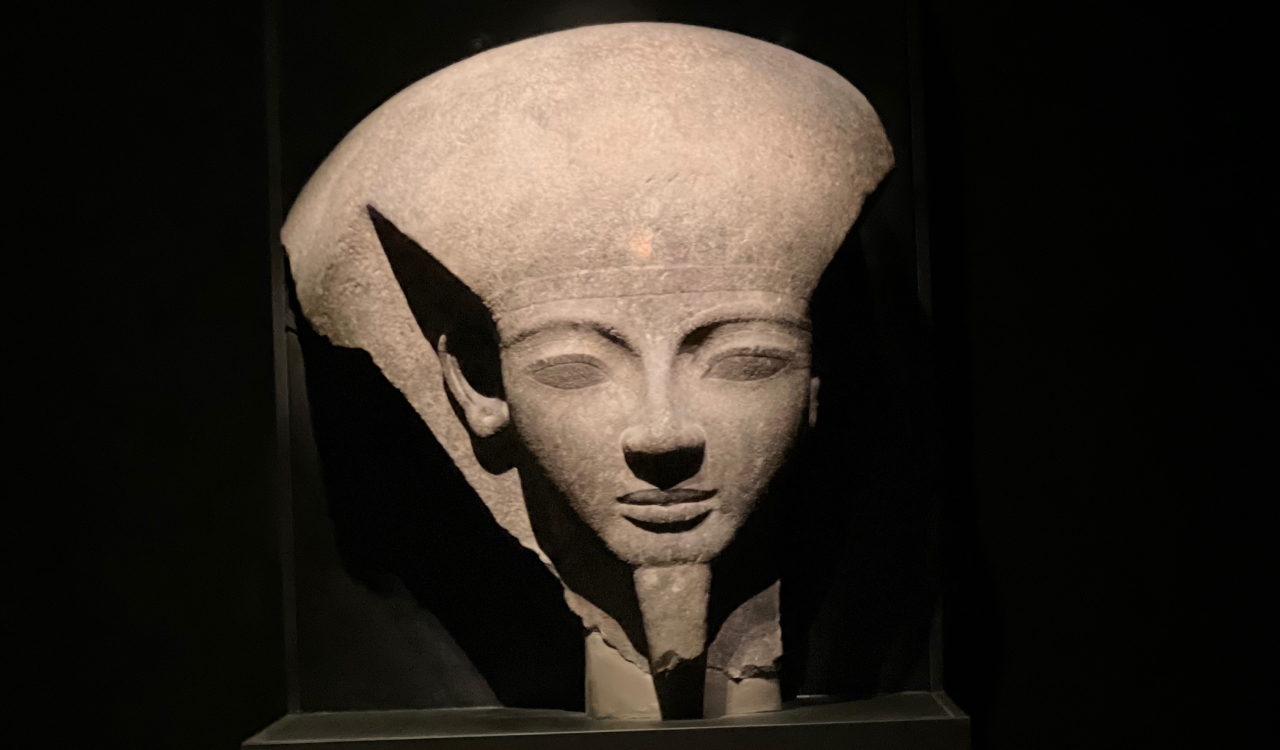Recently, my wife and I were invited to a tour of the National Gallery of Victoria's Pharaoh Exhibition — a remarkable collection of ancient Egyptian artefacts.
To be completely transparent, my wife was the one who was invited and I just tagged along because I love ancient things.
As we walked through this exhibition I felt the weight of thousands of years of antiquity sitting in the room in company with our small group — the gallery now closed to the public, unsettling in its quietness which worked to magnify the enormity of the artefacts on display.
Heads of Pharaohs, statues of goddesses, lions guarding tombs, hieroglyphic stories, parchments as old as time and ornaments from a time long gone.
A clash of dynasties, ancient cultures and timeless stories.
The Head Curator walked us through the exhibition telling us about each room and the artefacts within it; and slowly, something began to unsettle me.
I felt distant not connected to the ancient world on display.
I felt something integral was missing as I pondered at the great endeavour and vast distances of time and space that brought this work to this gallery, at this moment in time.
How did the wonderful display of creativity, antiquity and culture not connect with me and allow me to feel and sense the profoundness that was — and still is — Egyptian civilisation and culture?
How did the work of the many museums, galleries, arts leaders, volunteers and supporting organisations miss this one so very important thing that left me, and I'm sure others, thinking that this was not the exhibition we thought it to be?
I found the answer to this question right in front of me.
It was obvious and clear.
Last week, my team and I were once again invited back to listen to the stories of community elders and emerging elders from the Mantiyupwi people of the Tiwi Islands. An ancient people and culture, many more thousands of years older than the ancient Egyptians.
We are working with them to write what will become a charter to ensure their cultural integrity. A set of principles and guidelines that will be used by the organisations and institutions that work with the Mantiyupwi people, families and communities, to ensure that exists a deeper understanding of culture, and a shared sense of inclusion, equitable participation and representation.
It's not lost on me why an indigenous community would need a document to tell people how to ensure their cultural integrity.
Yet, here we are in this land they call Australia.
The answer to my Egyptian conundrum was found in the words of someone whom my team and I now call a friend, simply because we've travelled in light airplanes together, we've driven around dirt roads in someone else's four-wheel drive together, and we've sat in the beautiful country of his ancestors under the blistering sun and the bright blue sky that blanket's the north of Australia during the dry season — Gibson, a Tiwi Elder said to me, "they should do nothing with us without respecting our culture."
There wasn't something missing from the ancient Egyptian exhibition last night but rather someone.
Egyptian people.
Egyptian community.
Egyptian culture.
At a glance, a passerby could easily make the mistake that the artefacts originated in the British Museum and not on the beautiful landscapes of Egypt.
I read and read again a note, next to one beautiful large statue that said it was 'gifted' from to the English government by another, non-Egyptian government.
A passerby would easily make the mistake that the music was Egyptian when in fact it was not. It was made up for the exhibition by a Melbournian. That the light show and the curation was created to help the viewers understand the span of time rather than the rich, influential, powerful civilised people who inhabited this culture.
The very thing that was missing in that exhibition was the presence of the Egyptian people of today — the community — their culture, their food, laughter and the pride they would feel to see their ancestors, their artefacts and their heritage on display for this small part of the world to see.
I wanted to see and hear an Egyptian leader of today talk proudly of their ancestors, their stories and community.
I wanted so much to celebrate in their pride and their connection.
I scanned for sponsors and contributors. I read documents and literature and sadly found no connection to the Egyptian community of today.
Nothing that connected us, the viewers with a direct, straight line to the Pharaoh's of the ancient world and the beautiful Egyptian culture that exists in 2024.
This was invisible — it wasn't even mentioned.
I left feeling empty and sad that instead of beautiful Egyptian music we listened to synthesised, manufactured noise. Dust.
I left feeling disconnected and distant from the beautiful Egyptian food that has adorned my own dinner table since childhood, and instead we were handed napkins, crackers and cheese.
I left feeling that someone somewhere— a creative person, a leader — had made decision that left any semblance of cultural integrity at the door.
-
First published in The Weekly Journal of Creative Leadership.


